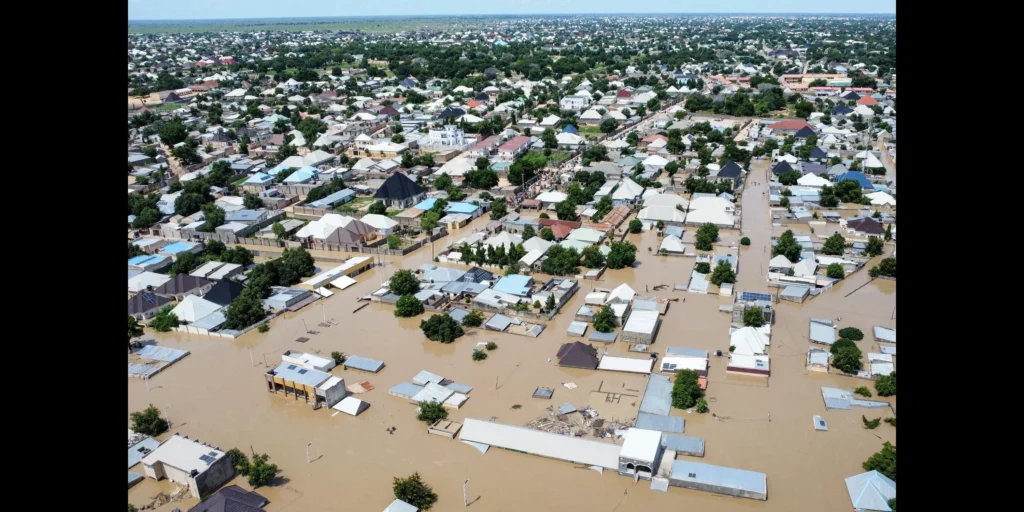
FG to Disburse ₦6.3 billion Interest-Free Loans to 21,000 Flood Victims
The Federal Government has announced a ₦6.3 billion interest-free loan package for 21,000 Nigerians affected by flood disasters across the country.
The Minister of State for Humanitarian Affairs and Poverty Reduction, Dr. Yusuf Sununu, disclosed this on Monday during a roundtable marking the 2025 International Day for Disaster Risk Reduction in Abuja.
The event was attended by Vice President Kashim Shettima, Deputy Speaker Benjamin Kalu, Zamfara Governor Dauda Lawal, lawmakers, and international partners.
Flood Recovery Support and Food Security
Sununu said the loans aim to mitigate flood impacts and help affected farmers and households recover.
“In the coming weeks, 21,000 Nigerians will receive interest-free, collateral-free loans of over ₦300,000 each to boost local resilience, especially in farming,” he announced.
The initiative is part of President Bola Tinubu’s Hope Agenda, focused on poverty reduction and economic empowerment at the community level.
₦300bn Disbursed Under Cash Transfer Programme
The Minister also revealed that the Conditional Cash Transfer (CCT) scheme has reached 8.1 million households with ₦300 billion, improving their income, health, and education.
“Through the National Social Investment Agency, we’ve supported 8.1 million households with ₦300 billion. This has boosted resilience and wellbeing, and the process continues,” Sununu stated.
Empowering Internally Displaced Persons (IDPs)
Sununu said the government is also introducing a scheme to empower internally displaced persons (IDPs) by purchasing 70% of their agricultural produce while they retain 30% for personal use.
“The money from the government’s off-take will go directly to the displaced persons who participated, providing a sustainable livelihood model,” he explained.
NEMA Calls for Stronger Disaster Management Framework
Earlier, NEMA’s Director General, Zubaida Umar, warned that Nigeria faces rising disasters linked to climate change, conflict, and pandemics, stressing the need for a proactive disaster management system.
She announced the rollout of two strategic policy documents — the NEMA Strategic Plan (2025–2029) and the National Disaster Risk Reduction Strategy (2025–2030) — designed to integrate risk management into national planning.
“We must shift from reactive to proactive funding, involving all sectors — agriculture, energy, health, and finance — to strengthen national resilience,” she said.
Umar added that NEMA is developing a National Risk Monitoring and Information Platform for early warning systems, vulnerability mapping, and risk-informed investment decisions.
She also advocated for innovative financing models, such as catastrophe bonds, insurance pools, and climate funds, to sustain disaster risk reduction efforts nationwide.
About Author
Discover more from BillionBill
Subscribe to get the latest posts sent to your email.


